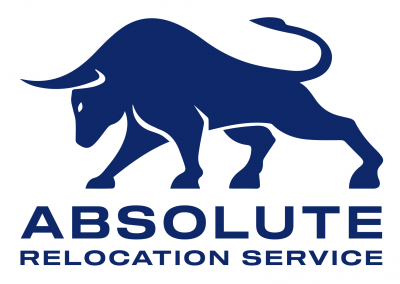Moving to Hawaii for students: Tips and advice
Moving students to Hawaii is an exciting and exhilarating adventure that opens up many new opportunities and challenges for young people. This island state, located in the heart of the Pacific Ocean, attracts with its picturesque beaches, unique culture and a wide range of educational and social opportunities. For many students, Hawaii becomes not only a place of study, but also an important stage in their lives where they can find themselves, learn new skills and experience the diversity of the islands’ cultural and natural heritage.
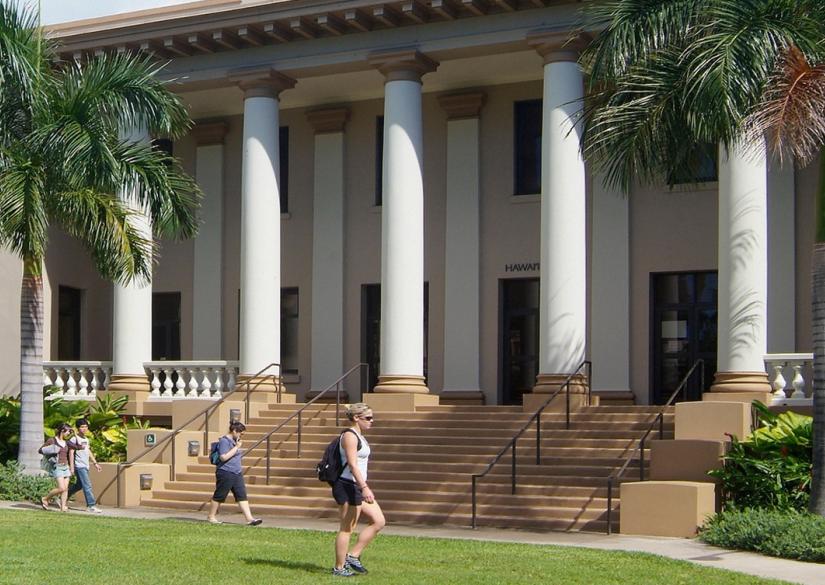
The importance and relevance of moving to Hawaii for students and their parents cannot be overstated. This state offers access to high-quality education at universities and colleges, including the prestigious University of Hawaii and Hawaii College. In addition, living in Hawaii provides a unique opportunity to immerse oneself in a variety of cultural traditions and beautiful nature, which is a valuable experience for personal growth and development.
The purpose of this article is to provide students and their parents with helpful tips and advice for a successful move and adjustment to Hawaii. We aim to help you plan your trip to the islands wisely, avoid common mistakes, and make the most of all the benefits that life in Hawaii offers.
Preparing to move to Hawaii for students: necessary steps and documents
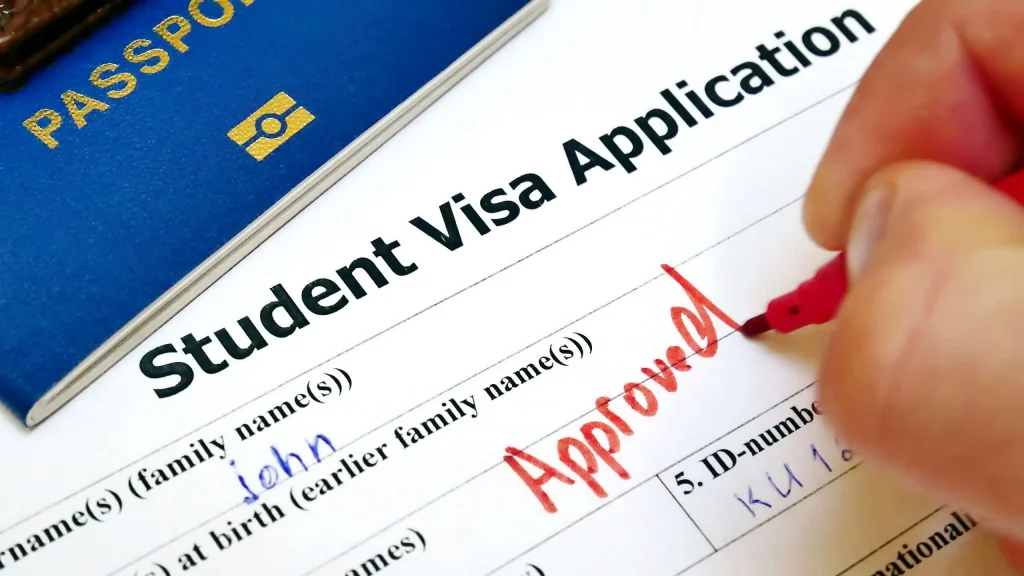
Before preparing to move to Hawaii to study, students should carefully plan the timing of their move to ensure everything goes smoothly and comfortably. The school year in Hawaii usually starts in August or September, so it is best to organise your move a few weeks before the start of the school year. This will give you enough time to adjust to your new environment and organise all the necessary procedures.
Student visa and residency information
To apply to an institution in Hawaii, students will need a number of documents including an application form, academic transcripts, letters of recommendation, and standardised test scores (if required). Some institutions may also require proof of financial need.
Collecting and preparing all the necessary documents takes time, so it is important to begin the process early. This is especially true for international students who may need time to obtain visas and other documents for relocation. Proper planning and organisation of all aspects of the move can help students make it a comfortable and safe experience.
Information about student visas and conditions of stay can be found on the website of the U.S. Embassy in your country. Also, official websites of universities and colleges in Hawaii often have sections for international students with information about visas, residency requirements, and financial aid.
Finding Housing
The next step in preparing for the move is finding housing. It is important to consider proximity to the institution, comfort level and affordability. You can search for accommodation either independently or through specialised agencies or online platforms. The following services may be useful to you:
- Airbnb (https://www.airbnb.com/) – a popular platform for renting accommodation from locals.
- Zillow (https://www.zillow.com/) – a website for finding rental accommodation and buying property.
- Craigslist (https://hawaii.craigslist.org/) – local listings for home rentals and neighbourhood services.
Health Care and Insurance
In addition to housing, care must be taken to register for health services. Students should familiarise themselves with the medical services provided by the institution and take out insurance in case of illness or accident.
Major insurance companies such as Blue Cross Blue Shield (https://www.bcbs.com/) or Aetna (https://www.aetna.com/) provide information on student health insurance.
Once on the islands, local clinics and medical centres such as The Queen’s Medical Centre (https://www.queens.org/) or Kaiser Permanente (https://healthy.kaiserpermanente.org/hawaii) are available.
Financial aid and scholarships
It is also important to take care of financial matters in advance. Students should research scholarships, grants, or other forms of financial aid, and consider a budget for living and studying for the entire duration of their studies.
You can apply for federal financial aid for U.S. students on the FAFSA website (https://studentaid.gov/h/apply-for-aid/fafsa).
Many universities and colleges provide information about scholarships and financial aid on their websites.
These resources can help students find housing, learn about residency and visa requirements, and address financial and medical issues before moving to Hawaii.
Costs and Financial Preparation: Budgeting and Finding Financial Aid
When planning a move to Hawaii, it is important for students to understand and calculate their financial expenses in advance in order to successfully adjust to the new environment and avoid financial hardship. In this section, we will look at how to budget for living and studying in Hawaii, as well as what sources of financial support can help students in this process.

Calculating your living budget
- Rent: The cost of renting housing in Hawaii can vary depending on location, type of housing, and rental terms. For example, in Honolulu, Hawaii’s capital city, the average rent for a one-bedroom flat can range from $1,500 to $2,500 per month, while on less popular islands prices can be lower, around $1,000 to $1,500 for the same type of housing. University dorms can cost an average of $500 to $1,000 per month for a place.
- Food: Food costs are also important to consider. Food costs on the islands can be higher than in the continental U.S., so students should make a shopping list ahead of time and stick to a budget. A minimum budget might be around $200 – $300 per month for food and restaurant visits.
- Educational Materials: The budget should include the cost of textbooks, office supplies, and other educational materials.
- Transportation: The cost of public transportation in the Hawaiian Islands ranges from $2 to $5 per trip. Students may also consider purchasing a monthly pass, which can cost between $60 and $100 per month.
If you plan to use a personal vehicle, on average, gasoline costs in Hawaii can range from $3.50 to $4.50 per gallon, depending on location and current prices. The cost of renting a car can also be significant, especially in popular tourist destinations and during the holiday season. For example, renting an average car for one day can cost $50 to $100, and for a week it can cost between $300 and $600, including insurance and taxes. In addition, consider parking costs, which can be quite high in city centres and on popular tourist beaches.
Financial Aid for Students
- Student Loans: Federal student loans can help cover some of your tuition and living expenses. Students can apply for financial aid by completing the Free Application for Federal Student Aid (FAFSA) form.
- Student Scholarships and Grants: Some universities and colleges offer scholarships and grants based on academic achievement and financial need. For example, the University of Hawaii at Manoa provides scholarships ranging from $1,000 to $10,000 per year depending on the student’s academic success and financial situation. Hawaii Pacific University also offers scholarships averaging between $5,000 and $15,000 per year. Students should contact their institution’s financial aid office for information on available opportunities.
- On-campus jobs: Students can work on campus to earn extra money. Wages typically start at $10 to $15 per hour, depending on the type of work and the student’s experience. This can be a great way to earn extra money and gain work experience.
Creating a budget and finding financial support can help students plan their move to Hawaii wisely and ensure that they can live and study comfortably in the islands.
Finding Housing: Housing Options for Students and Tips for Choosing Housing
When searching for housing in Hawaii, students can choose from a variety of options, including student dorms, flat rentals, shared housing, and more.
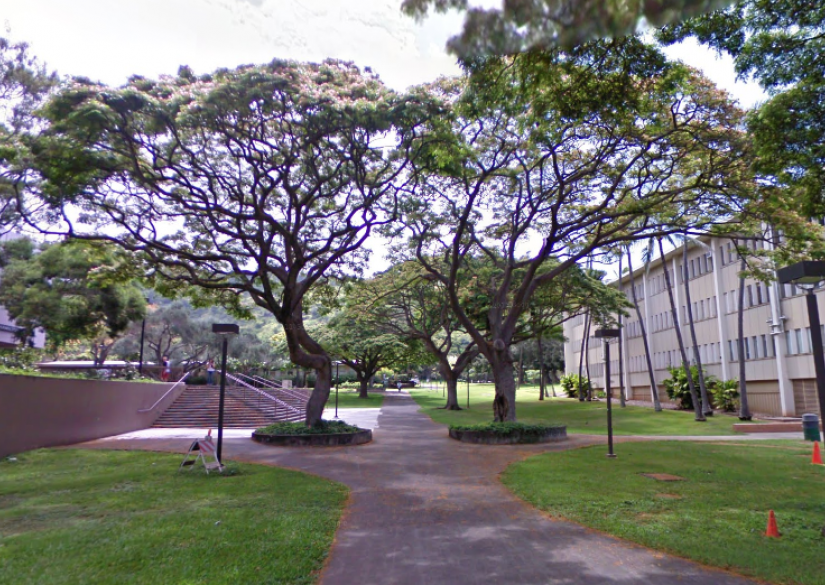
Student Dormitories
Student dormitories in Hawaii are provided by most universities and colleges. Dorm prices vary depending on the institution and facilities. On average, the cost of living in a student dorm in Hawaii ranges from $500 to $1200 per month.
Examples of student dormitories in Hawaii:
- University of Hawaii at Manoa – Student Housing Services https://manoa.hawaii.edu/housing/
- Hawaii Pacific University – Student Housing https://www.hpu.edu/residence-life/index.html
Flat rentals
The cost of flat rentals in Hawaii varies greatly depending on location, size, and conditions. On average, rent prices for a studio or one-bedroom flat range from $1200 to $2000 per month, depending on the neighbourhood and proximity to the school.
Examples of flat rental search services:
- Zillow – Apartments for Rent in Hawaii https://www.zillow.com/hi/apartments/
- Apartments.com – Apartments for Rent in Hawaii https://www.apartments.com/hi/
Shared Housing
Shared housing or renting a room in another student’s house or flat may be a more economical option. The cost of renting a room in shared housing typically ranges from $500 to $1,000 per month, depending on the size of the room and the conditions.
Examples of resources for finding shared housing:
- Craigslist – Hawaii Rooms & Shares https://honolulu.craigslist.org/search/roo
Choosing the right housing is an important step when moving to Hawaii. Make sure the housing you choose fits your needs and budget.
Academic and Social Adjustment: Learning and Fitting in with the College Community
The academic year at Hawaii’s colleges and universities is usually divided into two semesters: autumn and spring. The autumn term begins in August or September and ends in December, while the spring term typically runs from January to May. Some institutions also offer summer sessions, which usually take place in June and July.
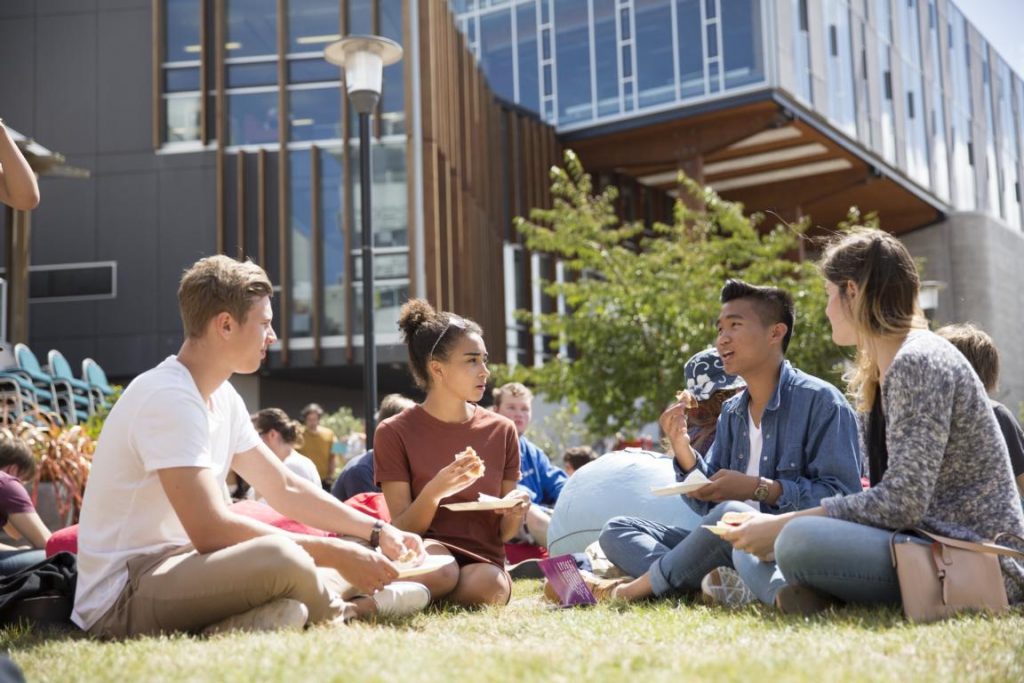
Learning features:
Instruction at Hawaii’s colleges and universities is usually based on lecture courses and practical classes. Depending on their specialisation, students can study a wide range of subjects including humanities, science and professional disciplines. Hawaii’s educational institutions are known for their programmes in tourism, agriculture, oceanography and cultural studies.
Participation in Student Life:
Student life in Hawaii is rich in cultural and social activities. Students can join various clubs and organisations, play sports, volunteer and organise events. Many universities also offer exchange and internship programmes, allowing students to immerse themselves in Hawaii’s culture and enhance their learning experience.
Cultural Events:
Hawaii hosts a variety of cultural events, including festivals, concerts, exhibitions, and traditional events that reflect local culture and traditions. Students can attend events organised by universities or outside universities to experience local culture and enrich their experience.
Students travelling to Hawaii to study can expect an interesting and varied learning experience, as well as participation in a host of cultural events and activities that will help them adapt to their new environment and fulfil their potential.
Safety and Health: Important safety and health concerns when moving and living in Hawaii

Safety rules in the islands
In the islands of Hawaii, it is important to follow a number of safety rules to keep yourself and others safe. One of the main rules is to be careful with natural resources, including beaches, the ocean, and the jungle. Visitors should follow the directions and warnings on signs and information boards, especially for warnings about drowning risks, strong currents, or dangerous animals.
Safety information
Students and new residents of Hawaii can learn basic safety rules from official local government websites such as the Hawaii Emergency Management Agency. This provides information on disaster warnings, emergency behaviour and other useful guidelines.
Health and Medical Services
Students moving to Hawaii should be aware of the health services available in the islands. Hawaii offers a wide range of health care facilities, including hospitals, clinics, and private clinics. It is important to have health insurance that covers medical expenses in Hawaii.
Movers can provide students with professional services to transport and deliver their belongings to the islands. By choosing a trustworthy moving company, students can rest assured that their move to Hawaii will be comfortable and relaxing. Absolute Relocation Service, specialises in moving to Hawaii and offers packing, transportation and shipping services with a full guarantee of safety and security.
Contact us in any way:
Telephone: (954) 773-9667
E-mail: abs@absoluteinc.org
Website: https://absoluterelocationservices.com
